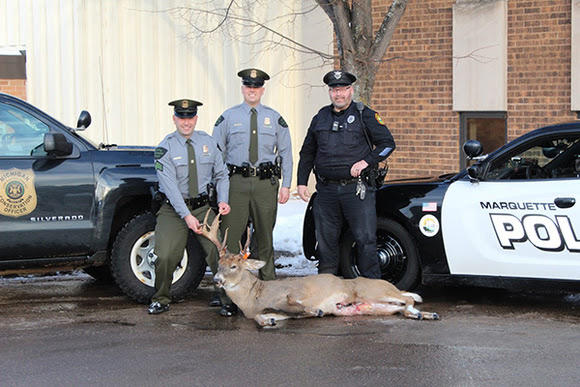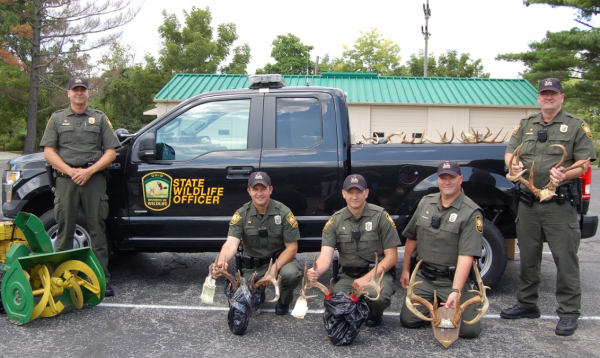Michigan: Wayne County resident charged in bull elk poaching
A 60-year-old Taylor resident has been charged with the illegal killing of a bull elk, after an investigation by Michigan Department of Natural Resources conservation officers and police in Otsego County.
The incident occurred Saturday, south of Vanderbilt.
The name of the man is not being released pending his arraignment in Otsego County District Court. The charge is a misdemeanor punishable by up to 180 days in jail and a fine of $2,000.
In addition, mandatory penalties include $5,000 restitution for the animal, more for an antlered elk, and hunting privileges being revoked for 15 years on a first offense.
At about 9:50 a.m. Saturday, Otsego County dispatchers received a tip about the elk poaching. The information was forwarded to conservation officers operating the DNR’s Report All Poaching line (800-292-7800).
A Michigan State Police trooper and an Otsego County Sheriff’s deputy were able to locate the carcass of the elk, the crossbow used to kill the animal and the suspect. Read more



